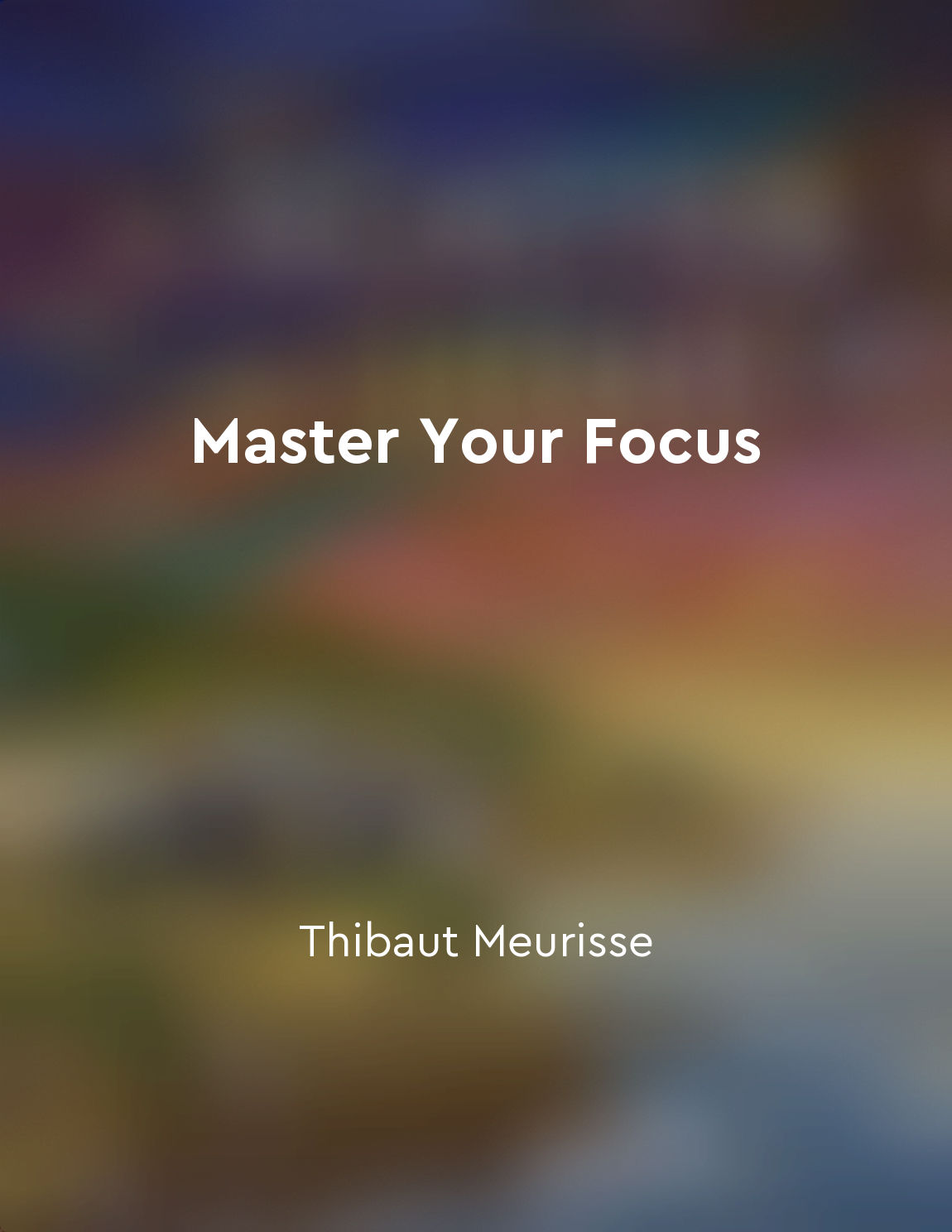Audio available in app
Practice singletasking from "summary" of Master Your Focus by Thibaut Meurisse
Singletasking is the practice of focusing on one task at a time, giving it your full attention and energy. In today's fast-paced world filled with distractions, singletasking is a powerful antidote to the constant multitasking that leaves us feeling overwhelmed and unfocused. By practicing singletasking, you can increase your productivity, improve your concentration, and reduce stress. When you commit to singletasking, you are making a conscious choice to prioritize the task at hand and eliminate all other distractions. This means turning off notifications, closing unnecessary tabs, and creating a quiet, clutter-free workspace. By creating an environment that supports singletasking, you can optimize your focus and work more efficiently. Singletasking allows you to fully immerse yourself in the present moment, giving your undivided attention to the task in front of you. This deep level of engagement enables you to produce higher-quality work and achieve better results. By approaching each task with intention and focus, you can move closer to your goals and make meaningful progress. In a world that values busyness and multitasking, singletasking may seem counterintuitive. However, by slowing down and focusing on one task at a time, you can actually accomplish more in less time. Singletasking is about working smarter, not harder, and being intentional about how you spend your time and energy.- Practicing singletasking is a skill that requires practice and discipline. It may feel challenging at first, especially if you are accustomed to juggling multiple tasks simultaneously. However, with time and persistence, you can train your brain to focus on one task at a time and reap the benefits of increased productivity and improved concentration. By embracing singletasking as a way of working, you can master your focus and achieve greater success in all areas of your life.


